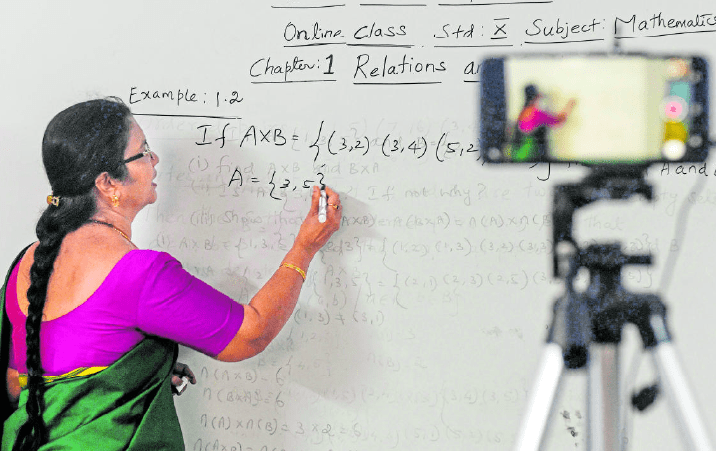Education in the 21st century is more dynamic than ever. New breakthroughs in technology and the emergence of fresh approaches in pedagogy are perpetually transforming teaching. Along with these changes come new challenges for teachers in schools and colleges.
Perhaps at no other time were these challenges more apparent than during the disruption caused by the coronavirus pandemic. Schools across the country competed to provide the best digital educational environment and the responsibility of online teaching fell squarely on the shoulders of teachers who were caught unawares by the sudden shift in the mode of transacting the curriculum.
The online teaching process is fraught with challenges that leave teachers overworked since it demands practical and refined digital skills. Low and irregular student attendance, lack of attention by students, apprehension for technology (especially among older teachers), poor internet connectivity, and, in most cases, the added pressure of household chores, have made online teaching a daunting task for many teachers.
Challenges faced by teachers
The task is challenging for all levels of teachers, from pre-primary to senior school ones. Apart from preparing engaging digital lesson plans, a lot of effort goes into gathering and preparing the items and props, for the primary teachers. Senior school teachers have a huge number of papers and assignments to mark, which can be very time-consuming. They also have to work overtime to brainstorm ideas and plans for their online classes.
Challenges posed by technology
New technologies are making eLearning and blended learning the new normal in education. But it has been observed that teachers take more time in teaching online than face to face.
In the online mode, teachers do not find proper methods of providing feedback to all students.
Teachers have concerns over the laboratory activities since virtual labs are not accessible to all students and not many lab activities can be conducted through virtual medium.
In the virtual mode, teachers often feel less connected to students and find it difficult to establish a good rapport with them.
While formative assessments are being done, online summative assessments are still posing a huge challenge. Authentic assessments are not happening online.
Teachers have to keep themselves up to speed with the latest digital tools that can be used in education.
Challenges posed by pedagogical advances
New pedagogical innovations are changing the way teachers teach in today’s classrooms. The education has become more student-centric and many lessons are customized rather than being generic to address specific gaps in student learning.
Teachers have to keep themselves apprised of the new assessment tools to better evaluate students’ academic progress.
A teacher’s role is transforming from a knowledge provider to a knowledge facilitator and counselor because of the abundant information that’s easily available online.
The nature of today’s learners is a far cry from those of a decade ago. Students today have a different attention span and are not interested in classroom chalk-talk or learning by rote. They are becoming needs-based learners. Teachers have to meet their rising expectations by making lessons interesting and engaging.
Challenges posed by National Education Policy
National Education Policy 2020 is going to permanently change the face of Indian education. Teachers have to reform their methods and align them with the new 5+3+3+4 curriculum structure.
Under the provisions of NEP, all educators, regardless of their position, will have to take at least 50 hours of Continuous Professional Development workshop every year.
NEP removes hard distinctions between the streams of arts, sciences and humanities, thereby necessitating a broader approach and qualifications on the part of teachers.
Overcoming the Challenges
All these challenges highlight the importance of teacher training in today’s world. With proper training, teachers can be empowered intellectually, digitally, and emotionally to answer the ever-increasing demands of pedagogy. Well-trained teachers can multi-task and improve different aspects of their practice, such as teaching, student assessment, and curriculum designing, while simultaneously up-skilling and re-skilling themselves to meet the higher standards of education in the 21st century. The student expectations are huge. So, teachers can’t afford to be complacent. They have to stay ahead of the curve to provide world-class education and break new barriers as well.
COURTESY- INDIA TODAY








